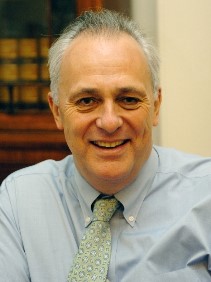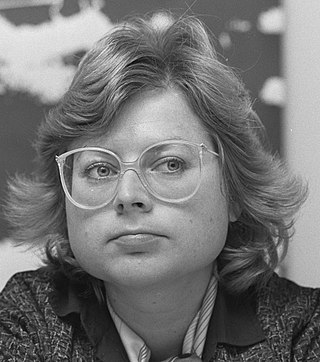
Extreme poverty is the most severe type of poverty, defined by the United Nations (UN) as "a condition characterized by severe deprivation of basic human needs, including food, safe drinking water, sanitation facilities, health, shelter, education and information. It depends not only on income but also on access to services". Historically, other definitions have been proposed within the United Nations.

Kofi Atta Annan was a Ghanaian diplomat who served as the seventh secretary-general of the United Nations from 1997 to 2006. Annan and the UN were the co-recipients of the 2001 Nobel Peace Prize. He was the founder and chairman of the Kofi Annan Foundation, as well as chairman of The Elders, an international organisation founded by Nelson Mandela.
The United Nations Development Programme (UNDP) is a United Nations agency tasked with helping countries eliminate poverty and achieve sustainable economic growth and human development. The UNDP emphasizes developing local capacity towards long-term self-sufficiency and prosperity.

International development or global development is a broad concept denoting the idea that societies and countries have differing levels of economic or human development on an international scale. It is the basis for international classifications such as developed country, developing country and least developed country, and for a field of practice and research that in various ways engages with international development processes. There are, however, many schools of thought and conventions regarding which are the exact features constituting the "development" of a country.

The United Nations Information and Communication Technologies Task Force was a multi-stakeholder initiative associated with the United Nations which is "intended to lend a truly global dimension to the multitude of efforts to bridge the global digital divide, foster digital opportunity and thus firmly put ICT at the service of development for all".

In the United Nations, the Millennium Development Goals (MDGs) were eight international development goals for the year 2015 created following the Millennium Summit, following the adoption of the United Nations Millennium Declaration. These were based on the OECD DAC International Development Goals agreed by Development Ministers in the "Shaping the 21st Century Strategy". The Sustainable Development Goals (SDGs) succeeded the MDGs in 2016.
The Grassington Millennium Project was an initiative that focused on detailing the organizational means, operational priorities, and financing structures necessary to achieve the Millennium Development Goals or (MDGs). The goals are aimed at the reduction of poverty, hunger, disease, illiteracy, environmental degradation, and Gender-Based Violence. At the United Nations Millennium Summit in September 2000 world leaders had initiated the development of the MDGs and set a completion date for the project of June 2005.

George Mark Malloch Brown, Baron Malloch-Brown is a British diplomat, communications consultant, journalist and former politician serving as president of Open Society Foundations since 2021, having previously served as Deputy Secretary-General of the United Nations under Kofi Annan from April to December 2006. A former member of the Labour Party, he served as Minister of State for Africa and the United Nations in the Brown government from 2007 to 2009.

The Millennium Summit was a meeting among many world leaders, lasting three days from 6 to 8 September 2000, held at the United Nations headquarters in New York City. Its purpose was to discuss the role of the United Nations at the turn of the 21st century. At the meeting, world leaders ratified the United Nations Millennium Declaration. This meeting was the largest gathering of world leaders in history as of 2000. It was followed five years later by the World Summit, which took place from 14 to 16 September 2005.
The United Nations Sustainable Development Group (UNSDG), previously the United Nations Development Group (UNDG), is a consortium of 36 United Nations funds, programmes, specialized agencies, departments and offices that play a role in development. It was created by the Secretary-General of the United Nations in order to improve the effectiveness of United Nations development activities at the country level.

Eva Leonie "Eveline" Herfkens is a retired Dutch politician and diplomat of the Labour Party (PvdA) and activist.
The Commission on HIV/AIDS and Governance in Africa (CHGA) was convened in 2003 by then UN Secretary General Kofi Annan under the leadership of Wilson Center Senior African Policy Scholar K. Y. Amoako, then the Executive Secretary of the United Nations Economic Commission for Africa (ECA).

The United Nations Office for Partnerships (UNOP) is a UN body established in 2006 by Secretary-General Kofi Annan to co-create partnerships within the private sector, civil society organizations, academia, and other non-state actors in furtherance of the United Nations Sustainable Development Goals.

Alan Claude Doss is a British international civil servant who has spent his entire professional life in the service of the United Nations, working on peacekeeping, development and humanitarian assignments in Africa, Asia and Europe as well as at United Nations Headquarters in New York City.

Rebeca Grynspan Mayufis is a Costa Rican economist who has been serving as Secretary General of the United Nations Conference on Trade and Development (UNCTAD) since 13 September 2021.
Stand Up and Take Action is the name of an annual global mobilization coordinated by the United Nations Millennium Campaign and the Global Call to Action against Poverty.

Salil Shetty is an Indian human rights activist who was the Secretary General of the human rights organization Amnesty International (2010–2018) till 31 July 2018. Previously, he was the director of the United Nations Millennium Campaign. Before joining the UN, he served as the Chief Executive of ActionAid. Most recently, Shetty had a short stint as the Vice President of Global Programs at the Open Society Foundations.

The Gender Equality Architecture Reform (GEAR) campaign was a network of over 300 women's, human rights and social justice groups around the world. The GEAR campaign urged UN Member States and the UN Secretariat to move swiftly forward to create a new UN gender equality entity. GEAR also urges the UN to set up a transparent process now for recruiting the best qualified Under Secretary-General to head this agency. The United Nations must move without further delay to implement changes that it has repeatedly recognized as critical to fulfilling its mandate of working for gender equality as a crucial component of development, human rights, peace, and security.

In the United Nations, the Post-2015 Development Agenda was a set of talks and discussion that led to the creation of the 2016 Sustainable Development Goals. This replaced the 2015 Millennium Development Goals.

The Millennium Development Goals Achievement Fund (MDG-F) was an international cooperation mechanism committed to eradicating poverty and inequality and to accelerating progress towards the Millennium Development Goals (MDGs) worldwide. Its aim was to improve livelihoods and to influence public policy, which made it responsive to the needs of the poorest populations.














